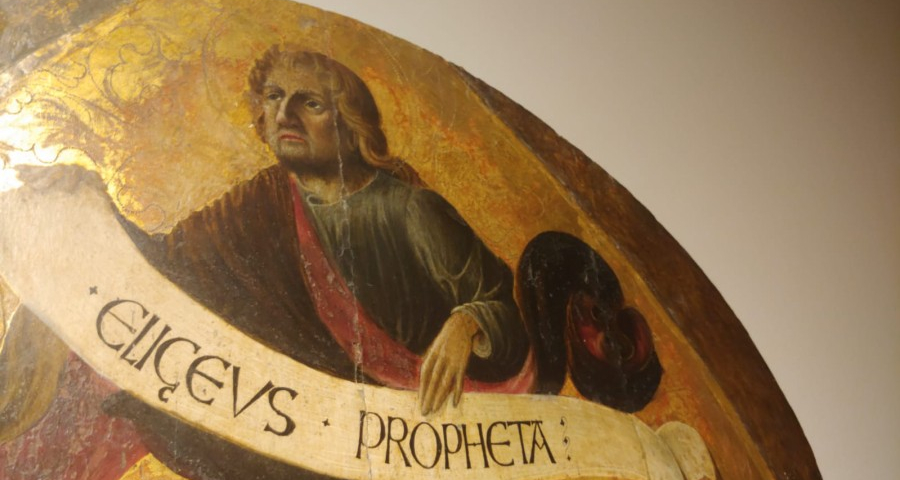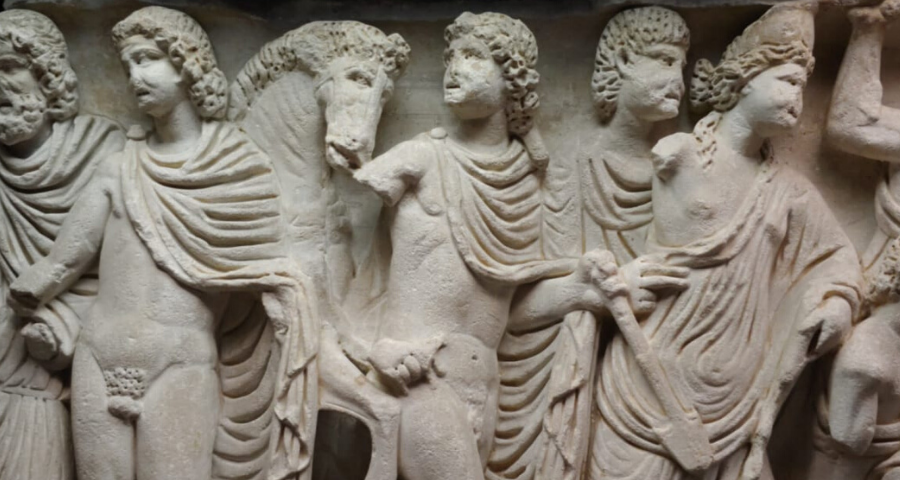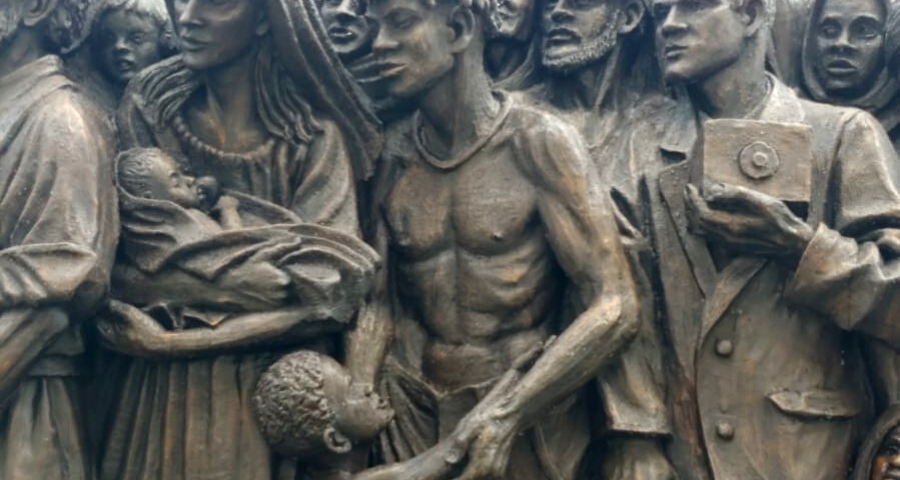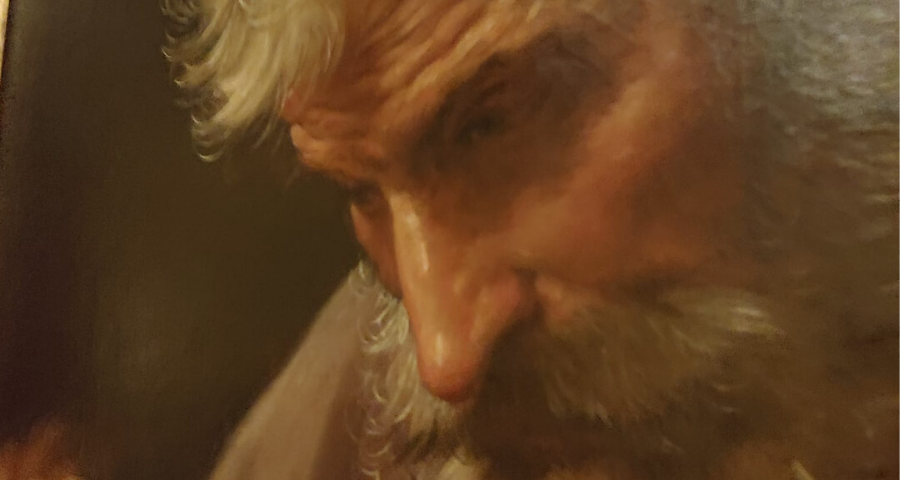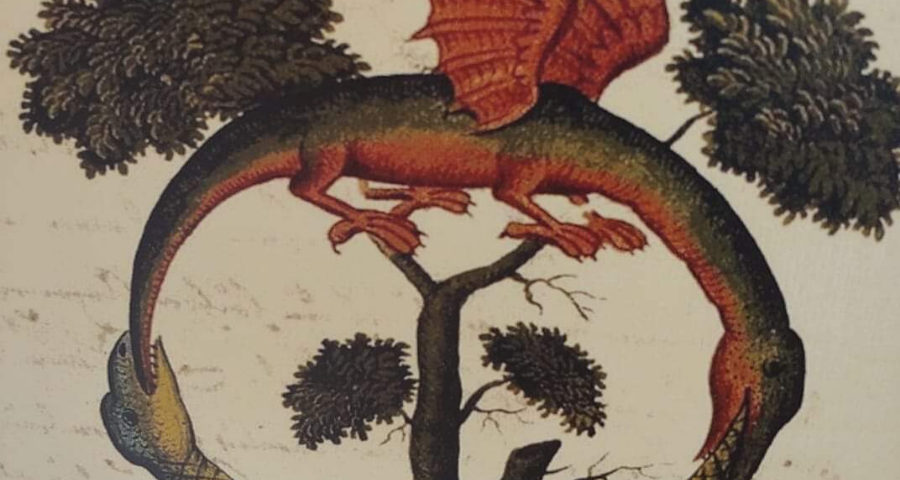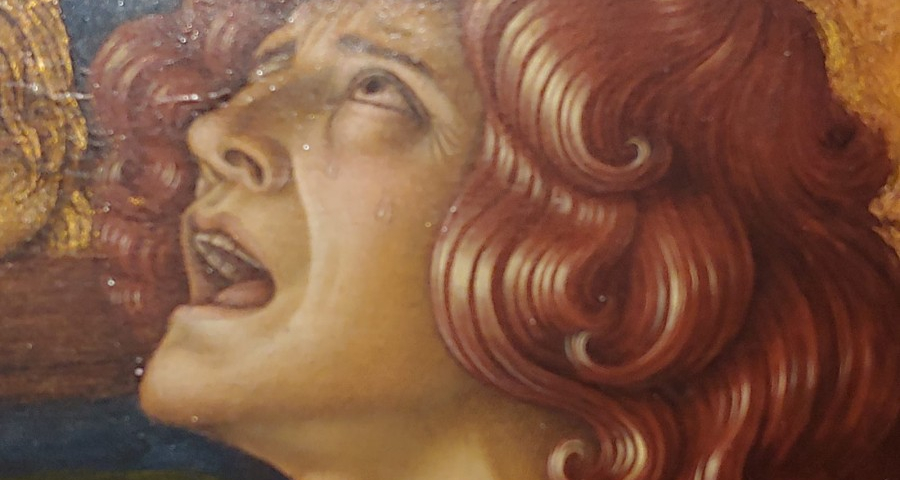Prophecy is history/17 - A firstborn is not enough, spiritual legacy requires a whole community
By Luigino Bruni
Published in Avvenire 29/09/2019
«The angel of death complained to the Lord, because the translation of Elijah would unleash protests from all other human beings who cannot defeat death/em>»
Zohar, The book of splendor (Il libro dello splendore)
The disappearance of Elijah on the chariot of fire and the beginning of the cycle of Elisha reveals an essential dimension of prophecy and of its continuity: everyone is a gift, father and disciple alike.
The calling of a prophet is a mysterious event. Generally the prophet is called upon directly by God, his calling takes place within a theophany, sometimes accompanied by visions of angels and voices. This is, however, not always the case. There are authentic prophets who never heard the voice of God calling them by name, who never saw the angels. They merely heard a "whisper of silence", or the cry of the poor - and got up and got on their way. Other times, it’s another prophet who calls to them. There they were by the shores of the Sea of Galilee, bringing in their nets. A different kind of man passed by, perhaps a prophet, and called to them, and they left the sea to become travellers on land. Elisha was also called upon by Elijah. Unlike Isaiah and Ezekiel, the disciples of the Nazarene and Elisha did not see the open skies. They saw a man, they heard only the voice of a man, and that human voice contained everything they needed to compel them to get up and leave everything behind. These are the typical callings of the prophets to the disciples, where the calling begins with a human voice. Sometimes the voice of God is added to the voice of the prophet; other times not, there is nothing but the voice of a man, of a woman. Elisha knew that Elijah was a prophet of the Lord, he knew that by following Elijah he would also follow God, but Elijah was the one who called him, not Elijah’s God. Elisha needed that human voice in order to be able to leave everything and start a new life. A calling that has been repeated many times through history, a calling that is renewed every day, when faith takes the form of trust in a human voice.
«So Elijah went from there [from Mount Horeb], and found Elisha son of Shaphat. He was ploughing with twelve yoke of oxen, and he himself was driving the twelfth pair. Elijah went up to him and threw his cloak around him. Elisha then left his oxen and ran after Elijah» (1 Kings, 19-20). Prophetic sequelae are fast. Elisha is called upon while he is ploughing, hence while he is all dusty, sweaty, with muddy feet. That’s where his calling reaches him. As an economist, and therefore an observer and lover of work and business, I always feel a thrill when I come across one of the many biblical scenes where the calling happens in a workplace. "While in the boat they were repairing the nets", "Word of Amos, who was a breeder of sheep". In the Bible there is no more "religious" place for callings than a ploughed field, there are no more sacred objects than a yoke of oxen, because in vocational liturgies even the smell of manure can be sweet incense. Herein lies one of the deepest roots of biblical humanism, which freed the voice of Elohim from the boundaries of the mere sacred and religious. And so, on 10 September 1946, that same freed voice was able to call out to Anjezë on a train between Calcutta and Darjeeling. In that dusty and profane means of transport "Mother Teresa" was born: that voice did not wait for the young nun to arrive at the spiritual retreat where she was going; it did not see the chapel of that centre as a more suitable place than a train car in order call out to her.
Elijah passes by Elisha and throws his cloak over him. In that world, the cloak or mantle was the first sign of a prophet, but it was also something more. At the beginning of the Second Book of Kings, Elijah is also recognized by Ahaziah, Ahab’s successor, from his mantle: «“What kind of man was it who came to meet you and told you this?” They replied, “He had a garment of hair and had a leather belt around his waist.” The king said, “That was Elijah the Tishbite”» (2 Kings 1,7-8).
There are many stories involving cloaks in the Bible. The sons of Noah covered their drunken father’s state of undress with his cloak; the Law of Moses demands that an insolvent debtor’s cloak, taken from him as a token, should be restored to him before the evening; David finds Saul and instead of killing him he only cuts off a corner of his cloak; and it was a scarlet mantle that was thrown over Jesus in front of Pilate, at the beginning of his passion: Ecce Homo not only had a tunic, he also had the cloak - both received, both donated. «When the Lord was about to take Elijah up to heaven in a whirlwind, Elijah and Elisha were on their way from Gilgal. Elijah said to Elisha, “Stay here; the Lord has sent me to Bethel.” But Elisha said, “As surely as the Lord lives and as you live, I will not leave you”» (2 Kings 2,1-2). Elijah tries to leave Elisha three times (in Jericho and by the Jordan), but Elisha stops him. In these lines we seem to re-read the wonderful dialogue between Naomi and Ruth or between Jesus and Peter on love and the flock.
During his first ventures into the desert, Elijah had managed to be by himself. When he took refuge, tired and frightened, in the shade of the broom tree, before leaving he had left his "servant" in Beersheba, and he was left on his own (1 Kings 19). Now, as he inches closer to his "death", Elisha does not leave him alone. Here we have a decisive difference between a servant and a disciple. The servant obeys, he does not argue, he does not protest. Not so the disciple, he cannot: «As surely as the Lord lives and as you live». In certain decisive tests - like this last one - the prophets would like to be alone. They are pulled within their souls into a mysterious whirlwind of pain and love. In some journeys we all seek solitude, but our natural affections often work as the precious antidote needed to prevent us from sinking indefinitely into solitude. The prophets do not have these natural antidotes-gifts. But the disciples can become one, as long as they remain disciples and do not become servants. If a prophet is only surrounded by "servants", he will find himself facing these nights without any real fraternity or companionship, immersed in a non-necessary pain that adds to the considerable inevitable pain. The disciple also brings this kind of extreme companionship to the prophet, a tenacious presence that follows the prophet in places where no one else could go. That is why, if the prophet is a great gift for the disciple, perhaps the greatest on earth, the disciple is also a gift to the prophet, perhaps the greatest one there is.
In this strange flight of Elijah’s, in this last mile of his in companionship, a company of mysterious "sons of the prophets" make their appearance and speak with Elisha: «The company of the prophets at Bethel came out to Elisha and asked, “Do you know that the Lord is going to take your master from you today?” “Yes, I know,” Elisha replied, “so be quiet!”» (2 Kings 2,3).
These "sons of prophets" were communities of prophets, who lived on the outskirts of the cities, often in sanctuaries. It is probable that Elisha also lived in one of these communities and was one of the "sons". He too therefore "knows" what awaits him, but Elisha does not want to listen to the information or the tale: "be quiet". Perhaps the sons of the prophets suggested that he should respect Elijah’s desire-command to be left alone. But Elisha is different. He too was part of a community of sons, but while remaining a son and therefore a brother, Elisha is also the disciple and the heir. And indeed, «Fifty men from the company of the prophets went and stood at a distance, facing the place where Elijah and Elisha had stopped at the Jordan» (2 Kings 2,7). The sons of the prophets stop at the threshold, the disciple continues the journey. And the last meeting between Elijah and Elisha unfolds around on the concept of legacy. «When they had crossed, Elijah said to Elisha, “Tell me, what can I do for you before I am taken from you?” “Let me inherit a double portion of your spirit,” Elisha replied"» (2 Kings 2,9). The double portion was the part of the inheritance that passed from a father to his firstborn. Elisha is asking to be Elijah’s heir - no less! Elijah answers: «“You have asked a difficult thing,” Elijah said, “yet if you see me when I am taken from you, it will be yours - otherwise, it will not”» (2 Kings 2,10). It is a difficult thing, but possible if he is able to look Elijah in the eyes as he fades away. The possibility of becoming Elijah's first-born heir depends on Elisha's ability to hold his gaze to the very end, his ability to resist in the face of his passing.
«As they were walking along and talking together, suddenly a chariot of fire and horses of fire appeared and separated the two of them, and Elijah went up to heaven in a whirlwind. Elisha saw this and cried out, “My father! My father! The chariots and horsemen of Israel!”» (2 Kings 2,11-12). Elisha sees this and cries out, “My father!” Elisha is the son, the heir. He watched and saw to the end. The heir must know how to face the passing of the prophet. And then become the father, collect the inheritance. In the ancient world, an inheritance only became effective after the death of the father. Elisha can become Elijah’s heir if he accepts his "death". He must accept that the father will disappear, become an adult, and continue the race. Every prophetic calling in adult age begins by accepting the death of the father. Elisha becomes the heir and prophet himself in the very same moment in which he succeeds looking straight into the face of Elijah’s disappearance, until the very end. But the first and perhaps the only effort of the disciple-son of a prophet is to become a father and a prophet himself, while always remaining a disciple and a son as well. And here we discover something important in the relationship between prophet-disciple-heir. Elisha asks to become the heir. Sometimes a prophetic inheritance can be asked and given, it can be the fruit of an interior calling within the heir - it is what often happens in the case of reformers of communities. But what matters most is that the inheritance regards the spirit. Elisha does not ask for Elijah’s cloak: he asks for his spirit. The cloak does not make the prophet; it is the spirit that makes him the heir of the prophet and therefore a prophet himself. What we are seeing here is a revolution of biblical prophecy. After Elisha, prophecy continued to exist as a profession, as a social status marked by wearing a mantle. But now, alongside institutional prophecy a new prophecy begins, one centred on the spirit, which will mark a new and extraordinary season, that of Isaiah, Jeremiah and Ezekiel.
There is one last thing, however. The whole spirit does not pass to the heir. The inheritance is only two thirds of the whole. In the age of spiritual prophecy, the firstborn who picks up the mantle of the prophet does not inherit the full spirit of the founder. He may receive a double portion, but not the full price. The heir of the prophet no longer has the whole spirit. He has a part, a good sizeable part, but not the whole, because part of the inheritance passes to other heirs, to the other "sons" or "children" of the prophet. The heir of the prophets is firstborn, but he is not an only child. After the passing of the prophet, no man alone can possess the whole spirit. The whole community is needed to inherit all three thirds.






